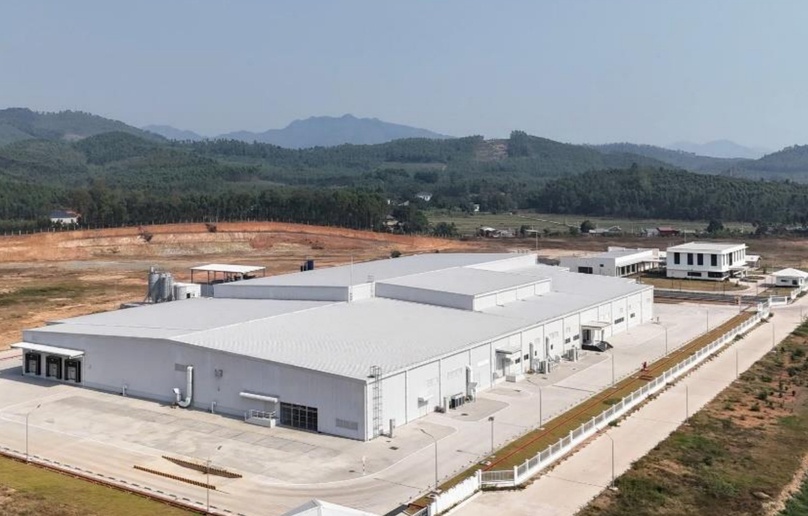Japan wants to invest in metro lines in HCM City
 |
| Japanese State Minister for Foreign Affairs Nobuo Koshi (L) meets with Deputy Standing Secretary of the municipal Party’s Committee Tất Thành Cang in HCM City on Saturday. - VNA/VNS Photo Thanh Vũ |
Japanese State Minister for Foreign Affairs Nobuo Koshi made the remark at a meeting with Deputy Standing Secretary of the municipal Party’s Committee Tất Thành Cang in the city on Saturday.
He said the Japanese government, localities and businesses hope to push ahead with co-operation with Việt Nam and HCM City in particular, adding that the recent rapid increase in the number of Japanese investors in the city demonstrates the Japanese side’s wish for stronger co-operation.
According to Koshi, Japan’s official development assistance (ODA) projects, including transport infrastructure projects, are being carried out on schedule in HCM City.
Cang proposed that Japan continue helping the city implement projects using Japanese ODA, especially the Bến Thành metro station and the metro line 3A connecting the city with southern Bình Dương and Đồng Nai provinces.
He expressed his wish for stronger collaboration with Japan in various fields from health, culture, and education to trade, investment and hi-tech agriculture.
The official urged Japan to speed up the implementation of the Chợ Rẫy hospital project, organise a Vietnamese cultural week in Japan, and support human resources training at electronic chip factories.
Local authorities were willing to create the best conditions for Japanese firms to invest in the city, and pledged to work with enterprises to ensure the efficiency of ODA-funded projects, he said.
Use of ODA funds
The HCM City People’s Committee confirmed with the Ministry of Planning and Investment in its recent report that the Official Development Agency (ODA) and other preferential capital resources were used for the right purpose and right timeline; ensured planned targets and efficiency; and greatly contributed to the city’s socio-economic development.
ODA and other preferential capital resources have played a very important part in the city’s socio-economic development, especially in developing infrastructure, environment, agriculture and healthcare.
To ensure the highest efficiency in using ODA and other preferential capital resources, the municipal People’s Committee has balanced its State budget and maintained corresponding capital following the timeline of ODA projects.
On the other hand, the city has paid attention to priority projects in the context of increasing public debts and reviewed all projects to maintain the highest investment efficiency.
In implementing projects, the city has set a detailed timeline for different parts of project and co-operation mechanisms among related authorities, especially for those which had a large amount of ground clearance and compensation.
The municipal People’s Committee has instructed ODA project management boards to be responsible for all anti-corruption activities.
At present, HCM City has deployed 20 projects with ODA capital for a total investment of VNĐ114 trillion (US$5 billion).
The disbursement levels of ODA and preferential capital resources are not equal among industries and sectors. Transport and environment projects, such as Bến Thành – Suối Tiên urban railway project and the second phase of a water improvement project for Tàu Hủ - Bến Nghé – Đôi – Tẻ canal system have total investment much higher than other projects in agriculture and healthcare.
In another news, at a reception meeting with Shinya Eima, deputy president of the Japan International Cooperation Agency (JICA) in HCM City on Friday, Nguyễn Thành Phong, chairman of the HCM City People’s Committee confirmed that Japan always is the biggest ODA sponsor for Việt Nam in general and HCM City in particular.
“HCM City hopes the Japanese Government, through JICA, will continue providing ODA for HCM City to deploy other water improvement and urban railway projects in the future,” he said.
The city would like JICA to introduce its urban railway projects to Japanese companies in order to expand public-private-partnership co-operation and help the city to train experts, engineers, professional workers, transfer technology and share experiences in operating metros.
What the stars mean:
★ Poor ★ ★ Promising ★★★ Good ★★★★ Very good ★★★★★ Exceptional
Latest News
More News
- Georgia: the right place to visit and invest (December 18, 2024 | 16:15)
- Quang Ngai’s incentives will lure in industrial investment (December 17, 2024 | 17:00)
- Dong Thap excited to hail investors to industrial zones (December 17, 2024 | 15:00)
- Dong Thap pushes on with crane conservation efforts (December 17, 2024 | 12:00)
- Wholesale upgrades drive Tien Giang goals (December 17, 2024 | 11:00)
- Investing channels worth attention (December 17, 2024 | 09:08)
- Proper mindset vital for serious investors (December 16, 2024 | 16:30)
- Market signals point to new openings for investment (December 16, 2024 | 12:09)
- Drivers remain strong for consumer sector (December 14, 2024 | 16:00)
- Decoding the variables shaping investments in 2025 (December 13, 2024 | 10:53)













 Mobile Version
Mobile Version